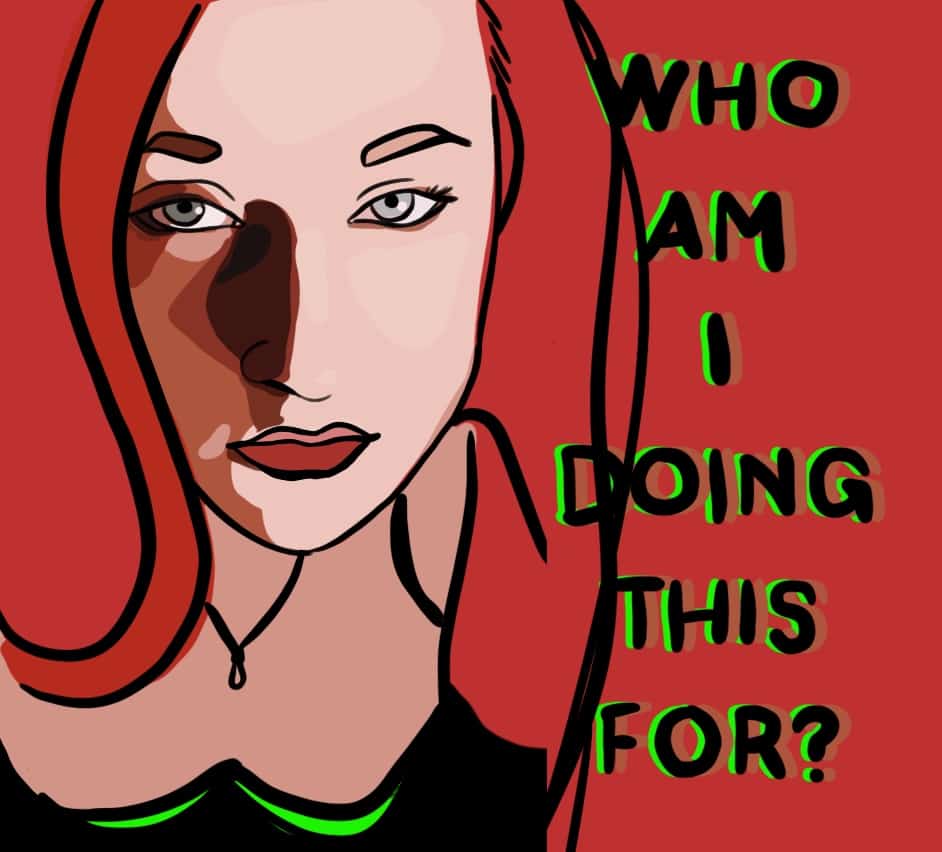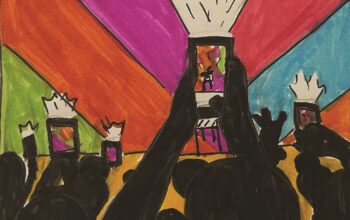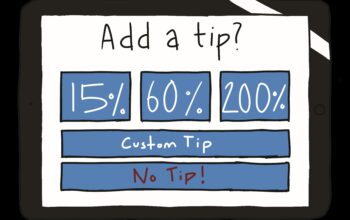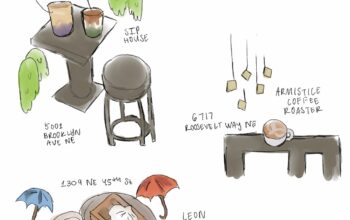
“I’m a hot girl, I do hot sh*t.” I live by these lyrics from Megan Thee Stallion’s song “Girls in the Hood”. At first, these lyrics may seem specific to one type of person, but Megan is actually referencing something deeper: How there is not one race, gender, sexuality, weight, ability, or religion that makes someone a “hot girl.” It’s not about what you look like, but what you feel empowered to do and who you feel empowered to be. This is the crux of dozens of Megan Thee Stallion’s songs, and why I, like so many others, was drawn to her single “Hot Girl Summer” in the summer of 2019.
Like much of mainstream pop culture, the phrase “Hot Girl Summer” originated from a Black woman. This is important to note because so much of Black culture is appropriated by mainstream media and adopted by white people. Megan’s message and lyrics about empowerment are a great example of this—blowing up on social media and quickly entering mainstream media.
Megan’s initial message was mostly oriented around having fun, being authentic, and being empowered like the “hot girls” we are all capable of being. While Megan’s lyrics contain a fair amount of sexually explicit content, the specific phrase “Hot Girl Summer” that originated from a tweet of hers wasn’t intended to be explicitly about sex. Instead, the term was meant to empower women and all genders to not care about what other people think and to be unapologetically yourself.
After her viral tweet, her song “Hot Girl Summer” was born. From here, the phrase entered my vocabulary, and two years later the internet is still obsessed. The LA Times writes, “The hashtag #hotgirlsummer has been used more than 100,000 times on Instagram, but that doesn’t even begin to scratch the surface of how prevalent the phrase is.”
As with most memes and pop culture references, over time the phrase’s meaning began to twist away from the original message. It started to be used more specifically to reference the idea that women should have the option to choose sexuality and sexual behavior, instead of being sexualized and objectified by the media and by men. Instead of just “empowerment,” embracing a “Hot Girl Summer” now meant “sexual empowerment.”
While I completely align with these notions about female liberation and sexuality, and even previously identified as one of the thousands participating in “Hot Girl Summer,” I realized that my “Hot Girl Summer” ended up not empowering myself, but serving others — specifically the men in my life.
Women are often seen as sexual only when it is in a non-consensual, objectifying way, but not when we choose it for ourselves. The media, through music, movies and television, social media, and news, exploits this idea of “female sexual liberation” without women themselves actually controlling the content and narrative.
Writers, executives, and producers in Hollywood are almost entirely men. According to Women and Hollywood, a news source that covers gender diversity and inclusivity in the film industry, of the 1,000 top-grossing films of the last decade, only 14.4% of writers and 21.1% of producers were women.
It is no wonder that the media created by men is also produced for men. Since men dominate the portrayal of women in the media, women are often depicted in sexually objectifying ways. This ultimately affects many women’s perceptions of themselves in addition to the perceptions of men who consume these images.
A film might portray a woman as “sexually empowered,” but her main personality trait is still as an object for male desire. For many, the perception of what “hot” is, what sexual empowerment is, what feminity is, still aligns with the male gaze. This is still objectification, and where the narrative of female empowerment in the media falls short.
As explained in a 2007 report by the American Psychological Association’s Task Force on the Sexualization of Girls, “The sexualization of young girls occurs when individuals, media, or when a society explicitly or implicitly demonstrates that a girl’s value comes only from her sexual appeal or behavior, to the exclusion of other characteristics, or when she is sexually objectified, or when sexuality is inappropriately imposed upon her.” This is rampant in movies, television, newspapers, and advertisements.
In my early teenage years, I spent so much time on social media seeing this sexualized portrayal of femininity. Like so many of my peers, I internalized this pattern. I mistakenly thought this was “empowerment,” but it still catered to what men and boys desired from me. I subconsciously began to associate my self-worth with approval through the lens of the male gaze, rather than for who I am and what I achieve.
In the case of “Hot Girl Summer,” the sexualization of young women was sensationalized on social media. Creators on the viral app TikTok, often young women creating content for other young women, began making “Hot Girl Summer” challenges where points are gained for “Hot Girl” activities like “kissing multiple people in a night,” “losing your virginity,” or “getting drunk.” Points are lost for doing “lame” things like “getting with someone shorter” or “catching feelings for someone.”
“Hot Girl Summer” therefore became less about doing what you want with your life freely and with confidence, and more about increasing the number of sexual partners and treating sexual activity, drugs, and drinking as conquests, instead of something you do safely and consensually. There’s so much to unpack with these challenges, where rape culture, misogyny, toxic masculinity, and heteronormativity intersect in incredibly harmful ways. But one of the most dangerous takeaways is the idea that sex is a meaningless game.
While it is unrealistic that every teenager’s sexual encounter is based on serious “feelings,” the emotions and mental health of young teenagers will be impacted in some way, specifically when sex happens because of outside pressures or if it isn’t safe. The APA’s Task Force on the Sexualization of Girls found that sexualization of girls is linked to common mental health problems in girls and women including eating disorders, low self-esteem, anxiety, and depression.
Unfortunately, the kind of sexual empowerment encouraged by the game-like, warped “Hot Girl Summer” TikTok trends comes from a place of over-sexualization, not empowerment, and therefore encourages the type of sexual activity that will negatively impact mental health. Young women, myself included, became convinced under the guise of “female empowerment” that sexual activity is what makes us powerful, not who we truly are as multi-dimensional human beings. “Hot Girl Summer” cannot be empowering unless it is solely for yourself. The minute young women view themselves as sex objects rather than people with value, identity, and interests, this “empowerment” turns into self-harm.
So be a true “Hot Girl” and live unapologetically, with confidence, and for yourself: Have sex, don’t have sex, but whatever you do, do it for you (with consent of course).



